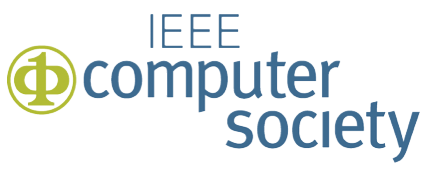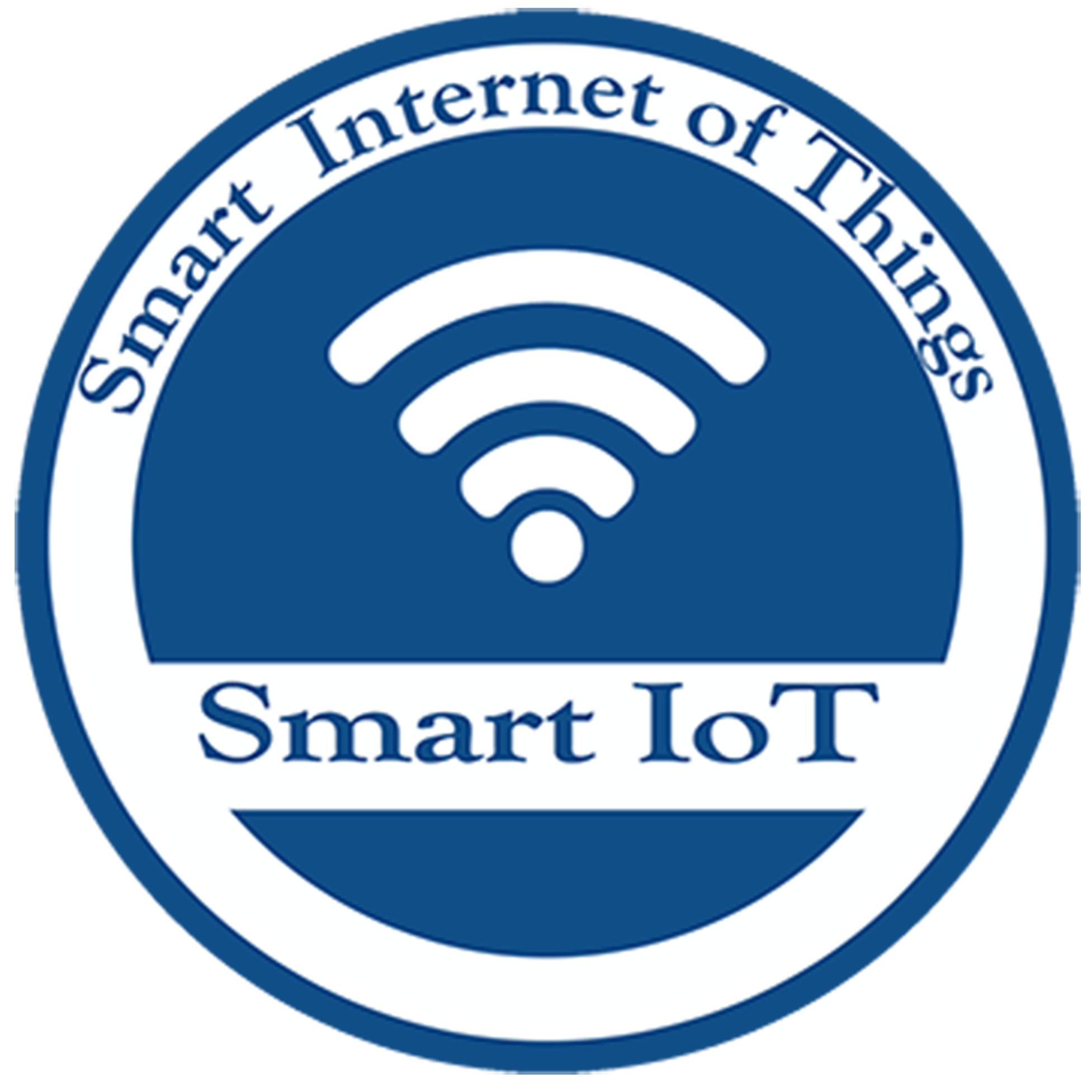| KEYNOTE SPEAKERS |
| IoT Wireless Communication Challenges in Surface Intelligent Transport System |
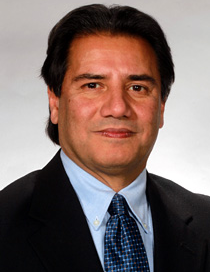 |
| Prof. Hamid Sharif, IEEE Fellow, Charles J. Vranek Professor, ECE Graduate Committee Chair |
| University of Nebraska-Lincoln (UNL) |
| Abstract |
|
Innovative wireless communications among a large of number of IoT devices enable new Intelligent Transport System (ITS) capabilities and applications for effective and reliable vehicle and traffic monitoring to control mobility, safety, and security of surface transportation. In the automotive industry, the in-vehicle communications and inter-vehicle communications offer different wireless challenges including integration with the existing communication protocols. In the rail environment, the smart IoT wireless communications play a critical role in monitoring and controlling trains and railcars. The challenges are extensive for passenger and freight trains, including the linear topology of freight trains with over 100 railcars. The challenges in passenger trains are also broad including the high-speed train`s wireless communications with time varying signals such as fading and path loss resulting from the train`s high velocity. This talk will discuss the research trends and challenges for IoT wireless communications in surface transportations for vehicles and rail systems to support the time critical applications and data intensive in automotive and rail environments. |
| Biography |
|
Hamid Sharif is an IEEE Fellow and the Charles J. Vranek Distinguished Professor in the Department of Electrical and Computer Engineering at the University of Nebraska-Lincoln (UNL). He is also the Director of Advanced Telecommunications Engineering Laboratory (TEL) at UNL. He has over 30 years of academic and industrial experience and his research interests include Mobile Communications, Intelligent Transportation, Mobile Computing, Mobile Communication Security, Mobile Internet, and IoT Cooperative Communications. His research has been supported by many US federal agencies and national and international industries. He has published over 350 research articles in national and international journals and conferences and has been serving on many IEEE and other international journal`s editorial boards. He has been the recipient of a number of research awards and best papers. He is also the recipient of the prestigious Fulbright Fellowship Award in Science, Technology and Innovation in 2013. He obtained his B.S., M.S. and Ph.D. in Electrical Engineering from the University of Iowa, University of Missouri-Columbia, and University of Nebraska-Lincoln respectively. He is currently the Distinguished Lecturer for the IEEE Vehicular Technology Society. |
| NB-IoTtalk: A Service Platform for Fast Development of NB-IoT Applications |
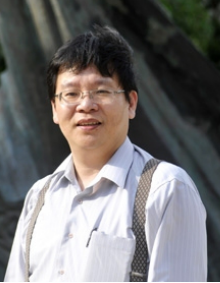 |
| Yi-Bing Lin, Prof. , AAAS Fellow, ACM Fellow, IEEE Fellow, and IET Fellow, Adjunct Research Fellow, Institute of Information Science, Academia Sinica, Research Center for Information Technology Innovation, Academia Sinica |
| Chiao Tung University |
| Abstract |
|
NarrowBand Internet of Things (NB-IoT) is considered as a promising wireless communications technology for Internet of Things (IoT) especially for the outdoor environment. Many outdoor IoT applications involve large numbers of homogeneous NB-IoT devices. It is tedious to specify and accommodate these devices during application development. To resolve this issue, this paper proposes a service platform for fast development of NB-IoT applications called NB-IoTtalk. This platform utilizes a tag mechanism to provide an easy-to-manipulate graphical user interface (GUI) to accommodate a large number of NB-IoT devices in an application and transparently show them in a visual map. Our approach automatically creates and parses the device profile used to interpret the payload of an NB-IoT message. We then use a smart parking lot application as an example to investigate the event-triggered reporting of NB-IoT in terms of the time-to-live report frequency and the outage detection accuracy. Our study provides the guidelines to set the time-to-live interval for event-triggered NB-IoT applications. |
| Biography |
|
Yi-Bing Lin received his Bachelor`s degree from National Cheng Kung University, Taiwan, in 1983, and his Ph.D. from the University of Washington, USA, in 1990. From 1990 to 1995 he was a Research Scientist with Bellcore (Telcordia). He then joined the National Chiao Tung University (NCTU) in Taiwan, where he remains. In 2011, Lin became the Vice President of NCTU. Since 2014, Lin has been appointed as the Deputy Minister of Ministry of Science and Technology, Taiwan. After 2016, he become a lifetime Chair Professor of NCTU. Lin is also an Adjunct Research Fellow, Institute of Information Science, Academia Sinica, Research Center for Information Technology Innovation, Academia Sinica, and a member of board of directors, Chunghwa Telecom. He serves on the editorial boards of IEEE Trans. on Vehicular Technology. He is General or Program Chair for prestigious conferences including ACM MobiCom 2002. He is Guest Editor for several journals including IEEE Transactions on Computers. Lin is the author of the books Wireless and Mobile Network Architecture (Wiley, 2001), Wireless and Mobile All-IP Networks (John Wiley,2005), and Charging for Mobile All-IP Telecommunications (Wiley, 2008). Lin received numerous research awards including 2005 NSC Distinguished Researcher, 2006 Academic Award of Ministry of Education and 2008 Award for Outstanding contributions in Science and Technology, Executive Yuen, 2011 National Chair Award, and TWAS Prize in Engineering Sciences, 2011 (The World Academy of Sciences). He is Chair of IEEE Taipei Section. Lin is AAAS Fellow, ACM Fellow, IEEE Fellow, and IET Fellow. |
| On Deep Learning Based Indoor Localization |
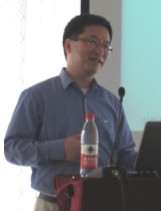 |
| Shiwen Mao, Samuel Ginn Endowed Professor, Director, Wireless Engineering Research & Education Center(WEREC), Department of Electrical and Computer Engineering, Auburn University |
| Abstract |
|
With the fast growing demand of location-based services in indoor environments, indoor positioning based on fingerprinting has attracted considerable interest due to its high accuracy. In this talk, we present our recent work on using deep learning for fingerprinting based indoor localization where Channel State Information (CSI), such as amplitude and phase difference information, are exploited for location estimation. Specifically, we present the design of ResLoc, which employs bi-modal CSI tensor data to train a deep residual sharing learning network. We then present DeepMap, a deep Gaussian process based approach for indoor radio map construction and location estimation, aiming to greatly reduce the training burden. Experimental results are presented to confirm that with deep learning and CSI, the proposed system can effectively reduce location error compared with existing methods in representative indoor environments. |
| Biography |
|
Shiwen Mao received his Ph.D. in electrical and computer engineering from Polytechnic University, Brooklyn, NY in 2004. He is the Samuel Ginn Distinguished Professor, and Director of the Wireless Engineering Research and Education Center (WEREC) at Auburn University, Auburn, AL. His research interests include 5G wireless, IoT, and Smart Grid. He is a Distinguished Speaker of the IEEE Vehicular Technology Society. He is on the Editorial Board of IEEE Transactions on Mobile Computing, IEEE Transactions on Multimedia, IEEE Internet of Things Journal, IEEE Multimedia, ACM GetMobile, among others. He received the 2017 IEEE ComSoc ITC Outstanding Service Award, the 2015 IEEE ComSoC TC-CSR Distinguished Service Award, the 2013 IEEE ComSoc MMTC Outstanding Leadership Award, and the NSF CAREER Award in 2010. He is a co-recipient of the Best Paper Awards from IEEE GLOBECOM 2016, IEEE GLOBECOM 2015, IEEE WCNC 2015, and IEEE ICC 2013, the Best Demo Award from IEEE SECON 2017, the IEEE ComSoc MMTC 2017 Best Conference Paper Award, and the 2004 IEEE Communications Society Leonard G. Abraham Prize in the Field of Communications Systems. |
| Secure Data Sharing based on Blockchain |
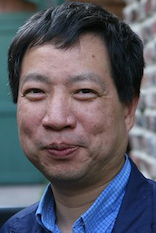 |
| Chunming Rong, Prof. Dr., Co-chair, IEEE Blockchain and Chair, IEEE Cloud Computing |
| Head, Center of IP-based Services Innovation (CIPSI), University of Stavanger, NORWAY |
| Abstract |
|
Data sharing has become a popular daily life activity all around the world. Data analysis may yield value in different aspects. Data driven services has foreseen potential in many sectors, for example energy, health, banking, insurance and transportation. However, violations of user privacy and digital rights management (DRM) in form of unintended data use, corporate applications and security breaches are being widely reported across multiple sources. The EU General Data Protection Regulation (GDPR) aims at protecting individual`s privacy. Cloud service providers dealing with EU citizen data must fully adopt to GDPR by 2018. However, accountability frameworks for distributed IT services is needed but still absent; hence it is difficult for users to understand, influence and determine how their service providers honor their obligations. It is important to support users in deciding and tracking how cloud service providers use their data. Blockchain and other distributed ledger technologies (DLTs), through recent development, enables not only transactions, but also smart contracts allowing complex computation on a network where parties are geographically distant or have no particular trust in each other to interact and exchange value and information on a fully distributed basis with fewer to non-existent central intermediaries. Our patented blockchain based decentralized and distributed technology proposes a novel on-the-fly dynamic control framework on shared data. The solution uniquely allows a user to trace, retract, remove and limit sharing of shared content. It gives the digital right and sharing control power back to the data creator, which is often considered as lost once it is shared today. It aims to create balance between data utility and privacy, thus creating a win-win situation between organizations and their customers. |
| Biography |
|
Prof. Chunming Rong is the co-chair of IEEE Blockchain, chair of IEEE Cloud Computing. He is the head of the Center for IP-based Service Innovation (CIPSI) at the University of Stavanger (UiS) and adjunct Chief Scientist leading Big-Data Initiative at IRIS. He was vice president (2015-2016) of CSA Norway Chapter. His research work focuses on data science, cloud computing, security and privacy. He is an IEEE senior member and is honoured as member of the Norwegian Academy of Technological Sciences (NTVA) since 2011. He has extensive contact network and projects in both the industry and academic. He is also founder and Steering Chair of IEEE CloudCom conference and workshop series. He is the steering chair and associate editor of the IEEE Transactions on Cloud Computing (TCC), and co-Editors-in-Chief of the Journal of Cloud Computing (ISSN:2192-113X) by Springer. Prof. Rong has extensive experience in managing large-scale R&D projects funded by both industry and funding agencies, both in Norway and EU. |
| Battery-free Sensing Techniques for Future Smart IoT World |
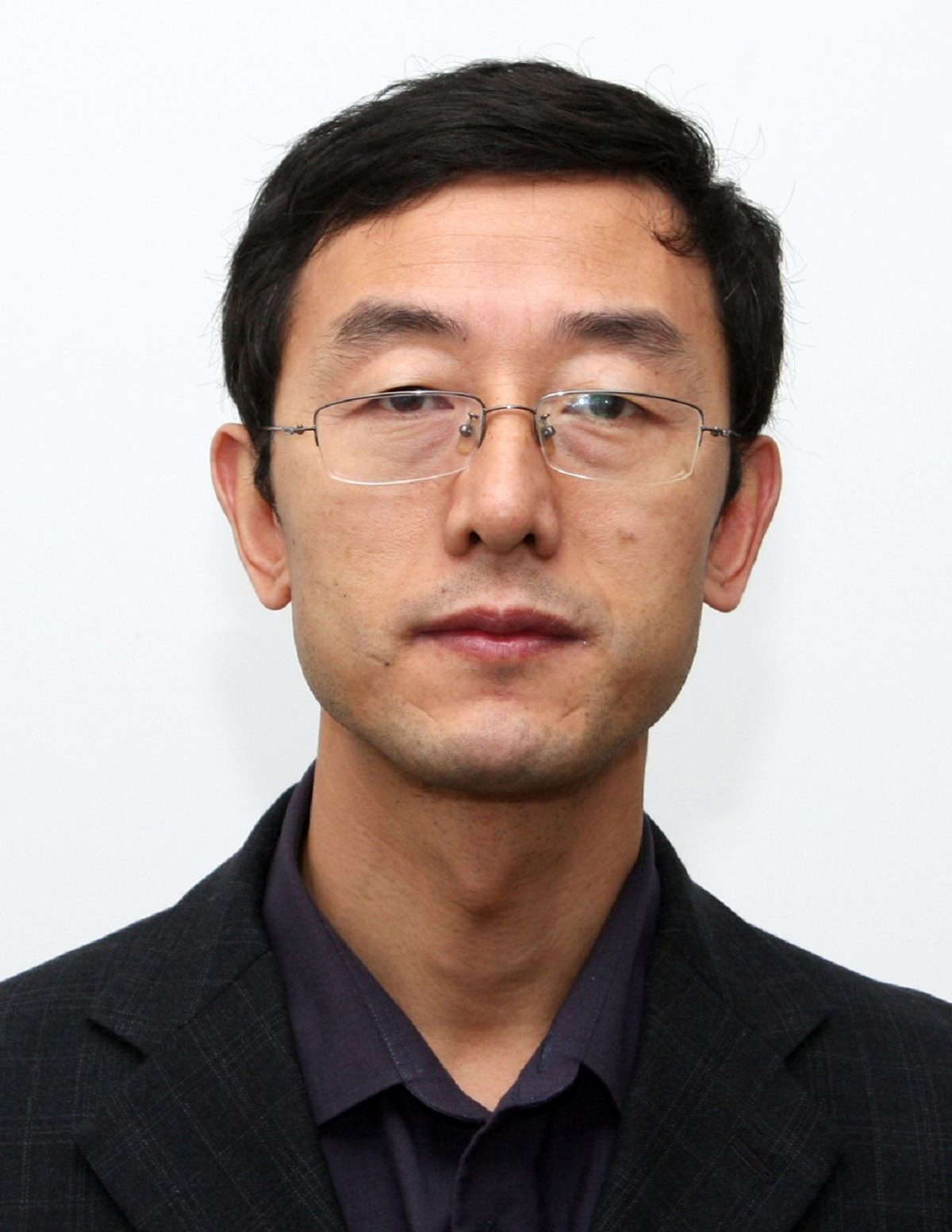 |
| Keqiu Li, Professor, The PI of NSFC for Distinguished Young Scholars |
| Tianjin University |
| Abstract |
|
In this talk, we will first briefly review the network development history, evolving from the simple networked computers, to current internet of things (IoT), and then future smart IoT. Smart IoT is an interdisciplinary research field, which involves not only traditional environment sensing, networking, but also various emerging techniques such as big IoT data analytics, cloud computing, Blockchain, and artificial intelligence. Generally, the architecture of smart IoT are divided into three layers: network access layer, which supports more pervasive and ubiquitous integration of objects into network; data storage layer, which provides more secure and efficient data storage; and data analytics layer, which discovers more underlying knowledge and achieves much deeper analytics. We focus on the data access layer, and mainly discuss the promising RFID technology, which have various unique advantages than other sensing techniques and thus has potential to become the cornerstone of future smart IoT. To let us have a global picture of current RFID research situation, existing hot research points, including large-scale inventory, highly accurate indoor localization, human-computer interaction, will be reviewed. After that, we will report some new research work from our lab from four aspects: improving wireless RF channel utilization, accuracy-guaranteed RFID cardinality estimation, secure RF communication, and also lightweight RFID localization. Finally, we point out some fundamental challenging issues in the context of smart IoT, which may inspire some new research directions. |
| Biography |
|
Keqiu Li received the bachelor's and master's degrees from the Department of Applied Mathematics at the Dalian University of Technology in 1994 and 1997, respectively. He received the Ph.D. degree from the Graduate School of Information Science, Japan Advanced Institute of Science and Technology in 2005. He also has two-year postdoctoral experience in the University of Tokyo, Japan. He is currently a professor with the School of Computer Science and Technology, Tianjin University, China. He has published more than 100 technical papers, such as IEEE TPDS, ACM TOIT, and ACM TOMCCAP. He is an Associate Editor of IEEE TPDS and IEEE TC. He is a senior member of IEEE. His research interests include internet technology, data center networks, cloud computing and wireless networks. |
| Satellites as an Enabling Technology for Internet of Things |
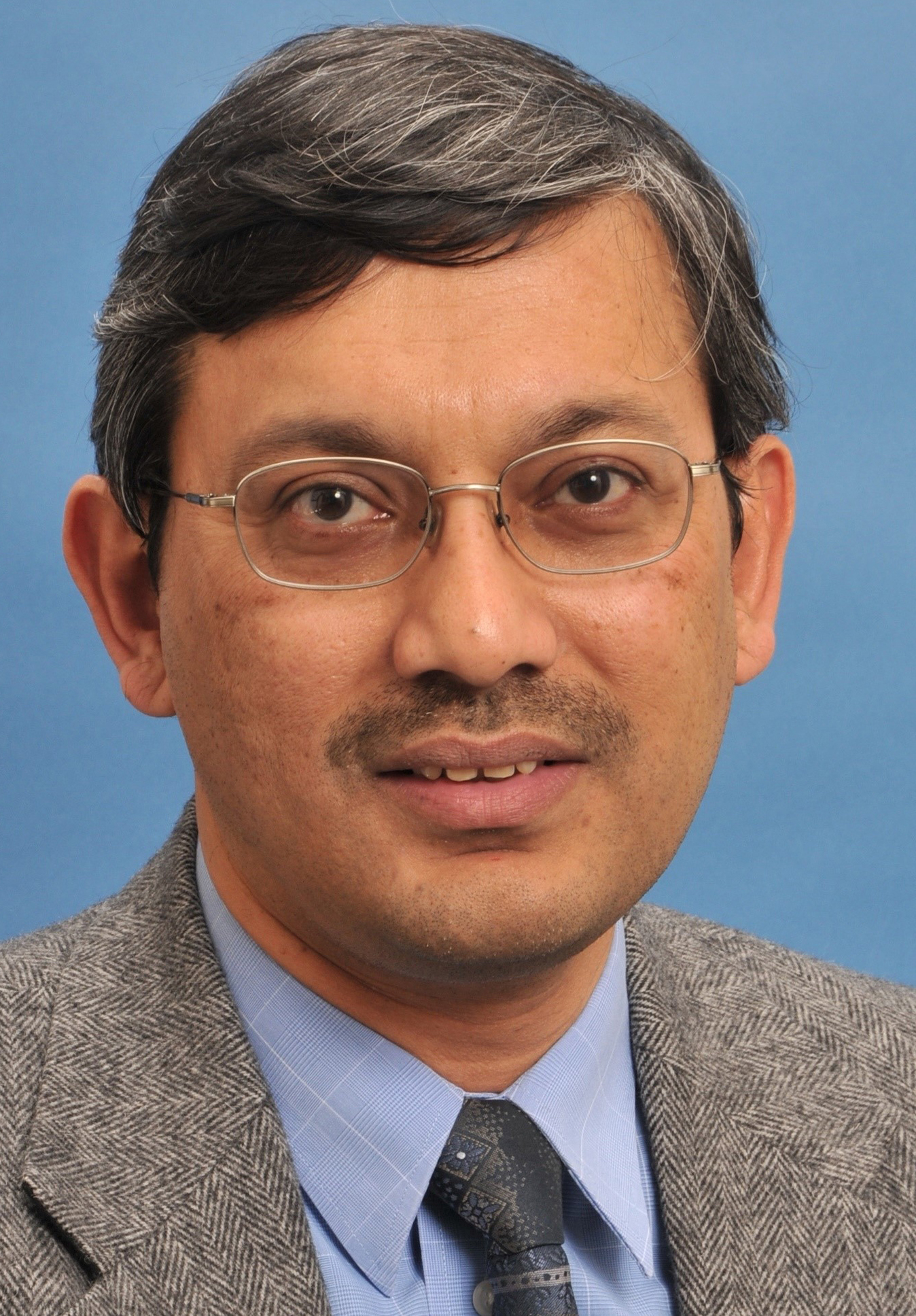 |
| Mohammed Atiquzzaman, Ph.D., Edith J. Kinney Gaylord Presidential Professor, School of Computer Science |
| University of Oklahoma |
| Abstract |
|
Satellites are expected to be an integral part of ubiquitous communications required for implementing Internet of Things. Data communications between Earth and spacecrafts, such as satellites, have traditionally been carried out through dedicated links. Shared links using Internet Protocol-based communication offers a number of advantages over dedicated links. The movement of spacecrafts however gives rise to mobility management issues. This talk will discuss various mobility management solutions for extending the Internet of Things to satellites. The talk with provide an overview of the network layer based solution being developed by the Internet Engineering Task Force and compare with the transport layer based solution that have been developed at University of Oklahoma in conjunction with the National Aeronautics and Space Administration for incorporating satellites in Internet of Things. Network in motion is an extension of the host mobility protocols for managing the mobility of networks which are in motion, such as those in airplanes and trains. The application of networks in motion will be illustrated for both terrestrial and space environment. |
| Biography |
|
Mohammed Atiquzzaman (Senior Member, IEEE) obtained his M.S. and Ph.D. in Electrical Engineering and Electronics from the University of Manchester (UK) in 1984 and 1987, respectively. He currently holds the Edith J Kinney Gaylord Presidential professorship in the School of Computer Science at the University of Oklahoma and the Sea Sky Visiting Professorship at Dalian University of Technology. This talk will discuss various mobility management solutions for extending the Internet of Things to satellites. Dr. Atiquzzaman is the Editor-in-Chief of Journal of Networks and Computer Applications, the founding Editor-in-Chief of Vehicular Communications, and serves/served on the editorial boards of many journals including IEEE Communications Magazine, Real Time Imaging Journal, International Journal of Communication Networks and Distributed Systems and Journal of Sensor Networks and International Journal of Communication Systems. He co-chaired the IEEE High Performance Switching and Routing Symposium (2003, 2011), IEEE Globecom and ICC (2014, 2012, 2010, 2009, 2007, 2006), IEEE VTC (2013) and the SPIE Quality of Service over Next Generation Data Networks conferences (2001, 2002, 2003). He was the panels co-chair of INFOCOM?05, and is/has been in the program committee of many conferences such as INFOCOM, Globecom, ICCCN, ICCIT, Local Computer Networks, and serves on the review panels at the National Science Foundation. He is the current Chair of IEEE Communication Society Technical Committee on Communications Switching and Routing. |
Created and Maintained by IEEE SmartIoT2018
